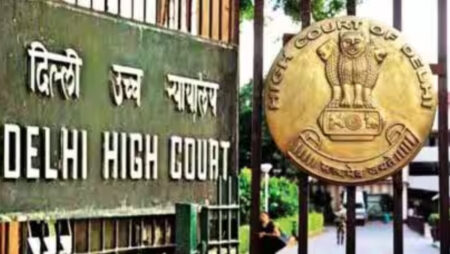Justice Pardiwala on the backlash from social media on Nupur Sharma case.After constantly receiving backlash and comments after the passing of the judgement on Nupur Sharma case, justice J.B Padriwala replied to the trolls.

Digital and social media need to be mandatorily regulated in the country to save the rule of law under the Constitution, Supreme Court Judge Justice J.B. Pardiwala said on Sunday, nominating as “dangerous” the crossing of “Lakshman rekha” on these platforms for “personalised, program-driven attacks” on the judges.
The reflections by Justice Pardiwala at an event in New Delhi come amid an uproar by a section over the strong oral obedience of a vacation.
He also defended the bench, in which he was a member, against suspended BJP leader Nupur Sharma for her controversial commentary against Prophet Mohammed. The apex court had said that her loose language has “set the country on fire” and she should apologise for the same.
The obedience of the bench, which had also refused to club the FIRs lodged against Sharma across the country, sparked a debate, including on digital and social media platforms, leading to some penurious commentary against the judges also.
Views of the Judges
“In India, which cannot be classified as a mature and informed democracy, social and digital media are used constantly to politicise purely legal and indigenous issues,” Justice J.B. Pardiwala gave the example of the Ayodhya land disagreement case.
He said the trials by digital media were an overdue interference in the justice division system. “Crossing that ‘Lakshman rekha’ multitudinous times, this is especially more worrisome,” the judge, who has recently been elevated to the top court, said.
Justice Pardiwala was speaking at the alternate Justice HR Khanna Memorial National Symposium organised by Dr Ram Manohar Lohiya National Law University, Lucknow and National Law University, Odisha along with the Confederation of Alumni for National Law Universities.
“Digital and social media need to be mandatorily regulated in the country to save the rule of law under our Constitution.”
“Attacks on our judges for the judgments will lead to a dangerous script where the judges will have to pay attention to what the media thinks rather than what the law actually states. “This puts the rule of law on the back burner, ignoring the sanctity of respect for the courts,” he said.
Speaking on the subject of “Vox Populi vs. The Supreme Court of India”, Justice Pardiwala said, “Judicial verdicts can’t be a reflection of the influence of public opinion.”
Observing that the rule of law has to prevail over popular public sentiment, the apex court judge said that balancing the intent of the mature crowd on one hand and meeting its demand and affirming the rule of law on the other is a “laborious exercise”.
“It takes an extreme judicial tradesman to walk the tightrope between the two,” he said. “That is where people believe ‘log kya kahenge, log kya sochenge’ is a mystery that haunts each and every judge whenever he is to pen down a judgement.”
He was talking about digital and social media, and said these sections retain only half-truth and start scrutinising the judicial process.
They are also not alive to the generality of judicial discipline, binding precedents, and essential limitations of judicial discretion, he said. “This section of people, the half-very knowledgeable, is the real challenge to the division of justice through the rule of law,” he said.
“Social and digital media have primarily resorted to expressing personalised opinions more against the judges per se rather than a constructive critical appraisal of their judgements.” This is what is harming the judicial institutions and lowering this quality, “he said.
The Hon. Justice Pardiwala said the indigenous courts have always graciously accepted informed dissent and constructive review and the legal morality has always barred the “personalised, program-driven attacks” on the judges.
He said the judges must not partake in social media exchanges as “judges in no way speak through their lingo, only their judgements.” He concluded his address by saying, “The bar can’t live independent of society, but the rule of law is insurmountable.”












